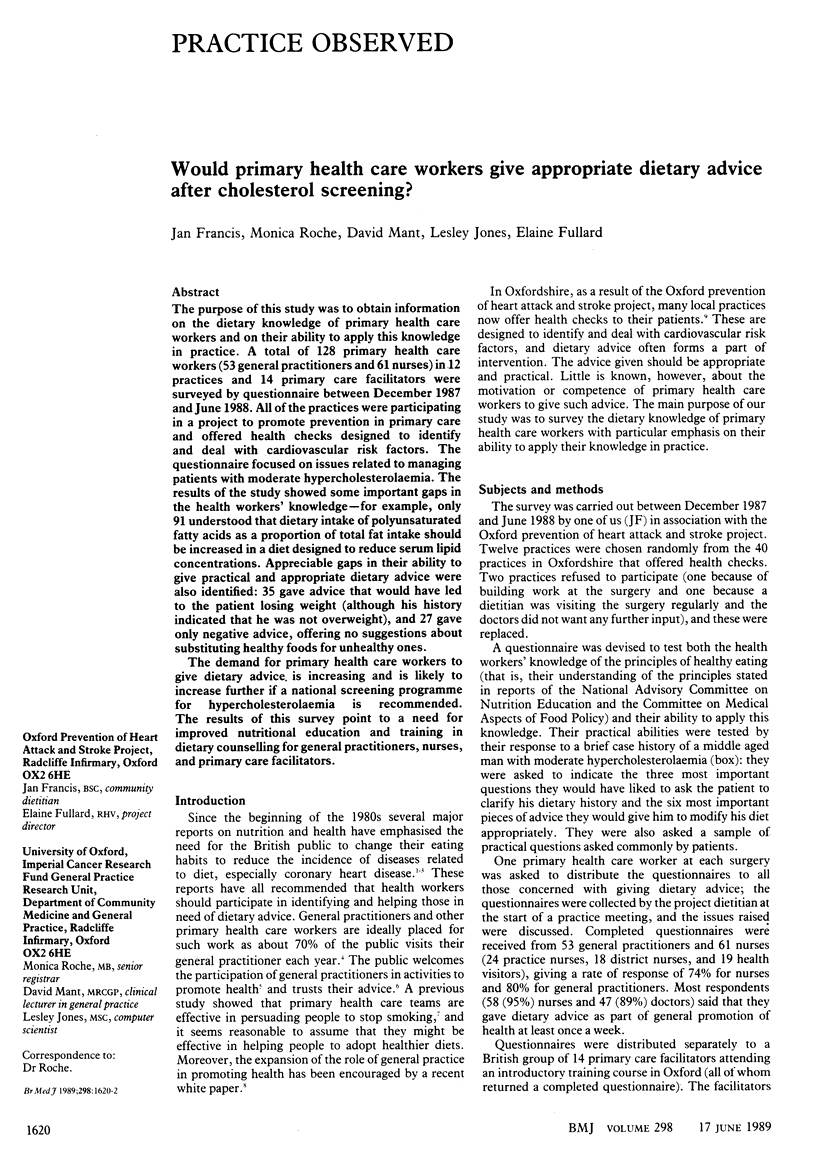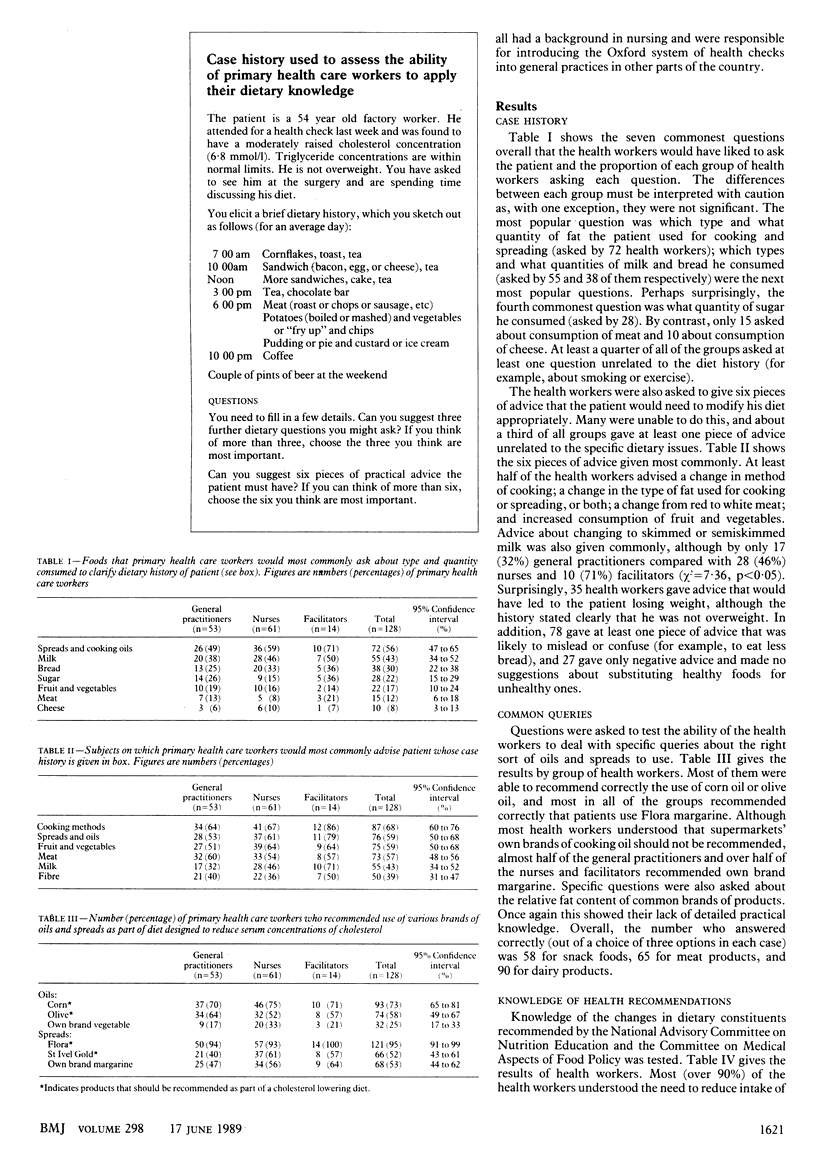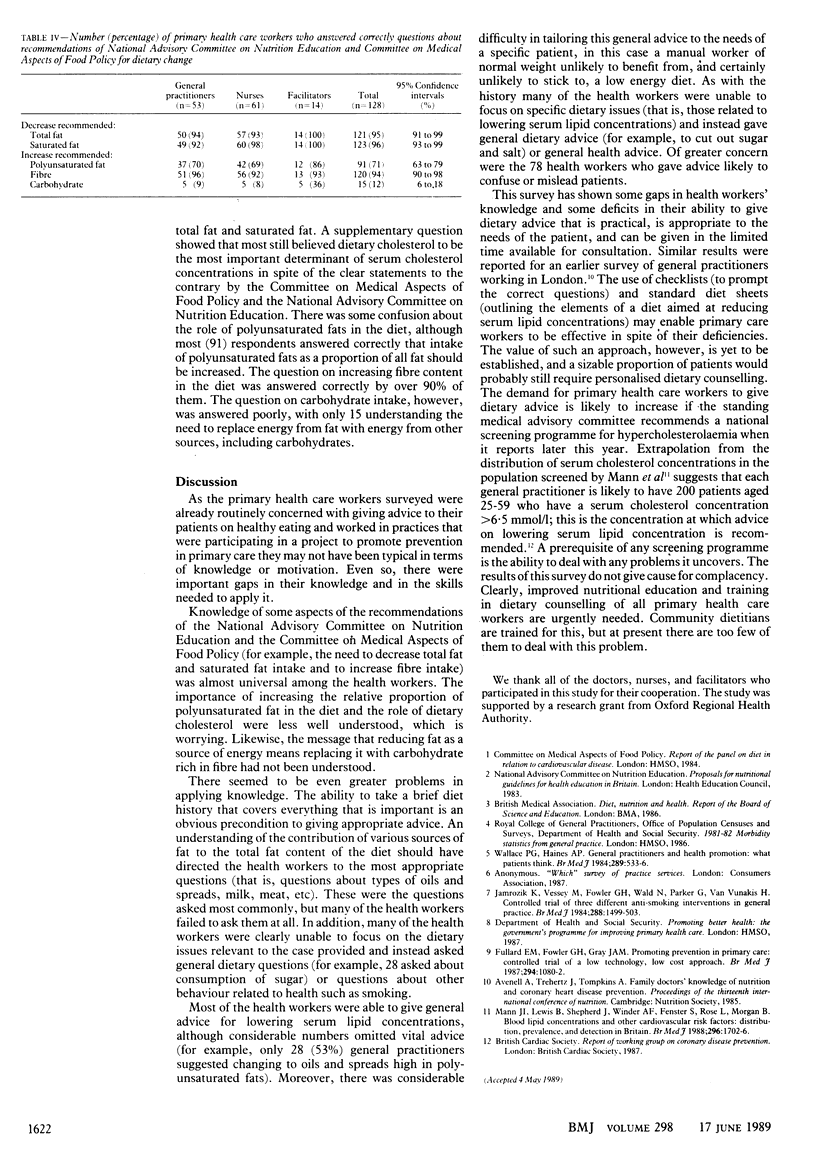Abstract
The purpose of this study was to obtain information on the dietary knowledge of primary health care workers and on their ability to apply this knowledge in practice. A total of 128 primary health care workers (53 general practitioners and 61 nurses) in 12 practices and 14 primary care facilitators were surveyed by questionnaire between December 1987 and June 1988. All of the practices were participating in a project to promote prevention in primary care and offered health checks designed to identify and deal with cardiovascular risk factors. The questionnaire focused on issues related to managing patients with moderate hypercholesterolaemia. The results of the study showed some important gaps in the health workers' knowledge--for example, only 91 understood that dietary intake of polyunsaturated fatty acids as a proportion of total fat intake should be increased in a diet designed to reduce serum lipid concentrations. Appreciable gaps in their ability to give practical and appropriate dietary advice were also identified: 35 gave advice that would have led to the patient losing weight (although his history indicated that he was not overweight), and 27 gave only negative advice, offering no suggestions about substituting healthy foods for unhealthy ones. The demand for primary health care workers to give dietary advice is increasing and is likely to increase further if a national screening programme for hypercholesterolaemia is recommended. The results of this survey point to a need for improved nutritional education and training in dietary counselling for general practitioners, nurses, and primary care facilitators.
Full text
PDF


Selected References
These references are in PubMed. This may not be the complete list of references from this article.
- Bahrami J. DRCOG: Time for change? Br Med J (Clin Res Ed) 1984 Sep 1;289(6444):533–534. doi: 10.1136/bmj.289.6444.533. [DOI] [PMC free article] [PubMed] [Google Scholar]
- Fullard E., Fowler G., Gray M. Promoting prevention in primary care: controlled trial of low technology, low cost approach. Br Med J (Clin Res Ed) 1987 Apr 25;294(6579):1080–1082. doi: 10.1136/bmj.294.6579.1080. [DOI] [PMC free article] [PubMed] [Google Scholar]
- Jamrozik K., Vessey M., Fowler G., Wald N., Parker G., Van Vunakis H. Controlled trial of three different antismoking interventions in general practice. Br Med J (Clin Res Ed) 1984 May 19;288(6429):1499–1503. doi: 10.1136/bmj.288.6429.1499. [DOI] [PMC free article] [PubMed] [Google Scholar]
- Mann J. I., Lewis B., Shepherd J., Winder A. F., Fenster S., Rose L., Morgan B. Blood lipid concentrations and other cardiovascular risk factors: distribution, prevalence, and detection in Britain. Br Med J (Clin Res Ed) 1988 Jun 18;296(6638):1702–1706. doi: 10.1136/bmj.296.6638.1702. [DOI] [PMC free article] [PubMed] [Google Scholar]


